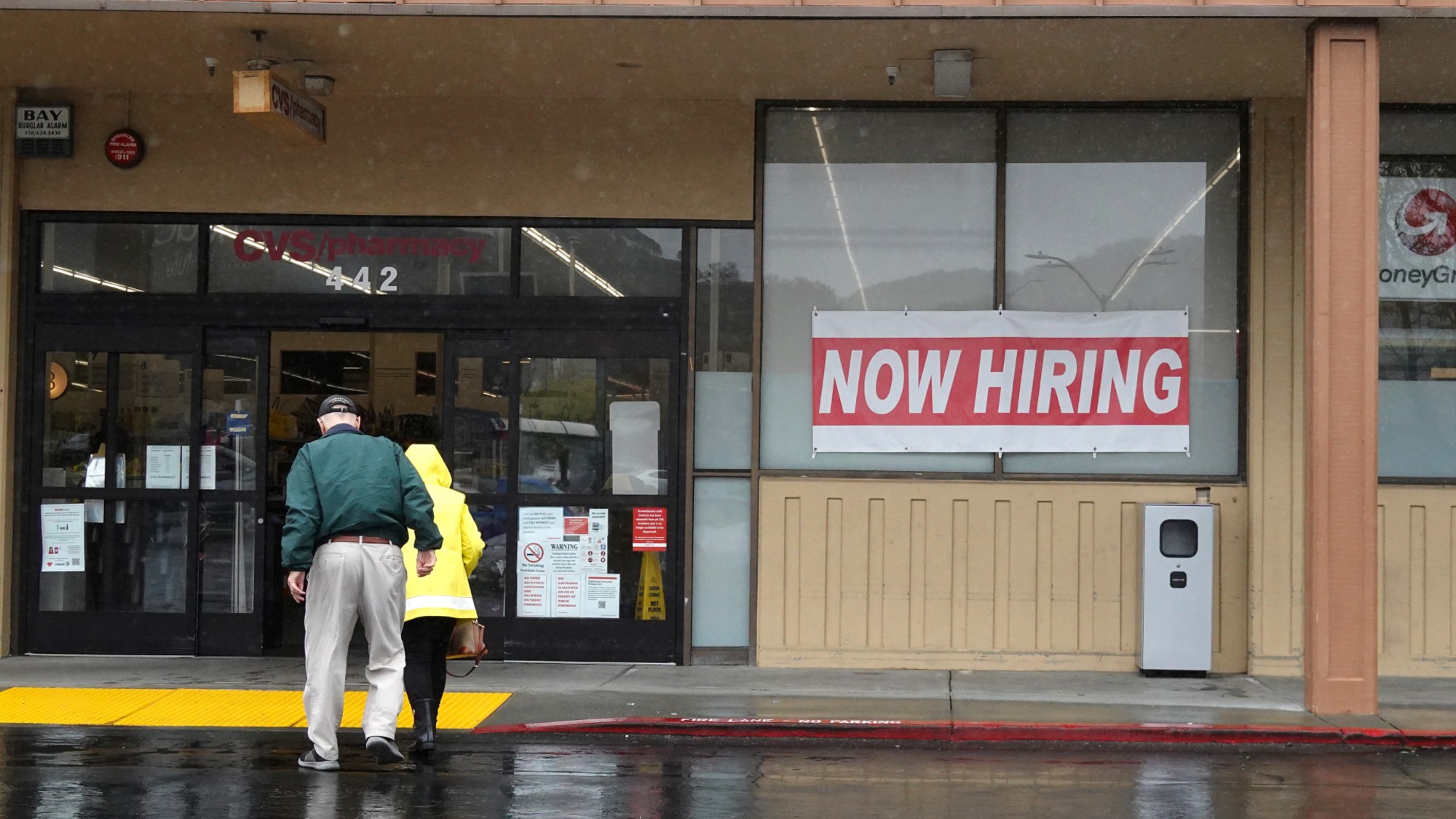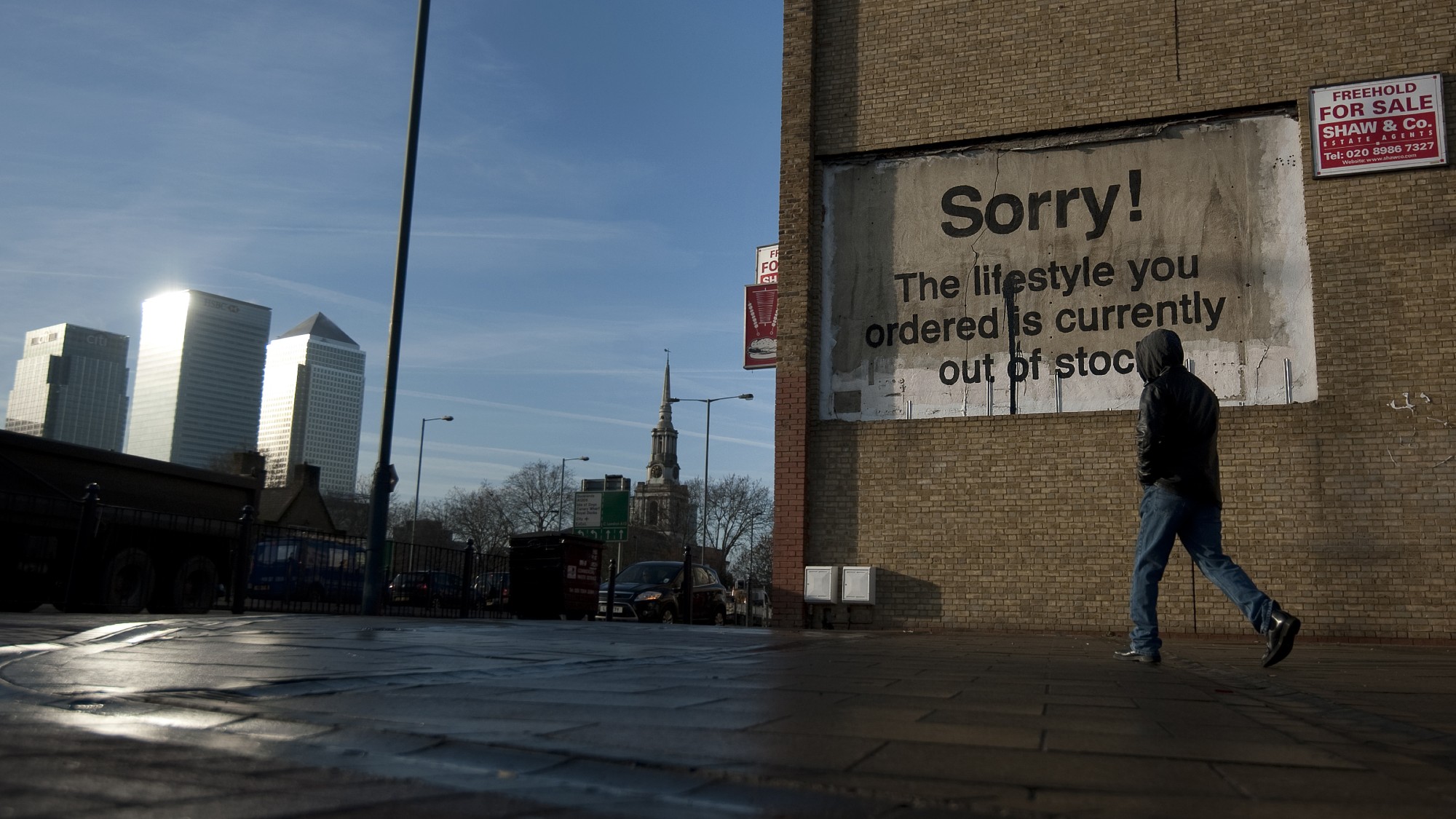Is the UK facing a ‘cost of doing business’ crisis?
Mass insolvencies loom as companies face fourfold increases in energy bills

A free daily email with the biggest news stories of the day – and the best features from TheWeek.com
You are now subscribed
Your newsletter sign-up was successful
Soaring energy bills are fuelling a “cost of doing business crisis” that may force countless British companies into liquidation, ministers and lobbyists are warning.
Companies are not covered by Ofgem’s energy price cap, instead negotiating bespoke fixed-term contracts with suppliers. And with many of those contracts expiring this year, “the majority of UK companies are due to renegotiate their electricity and gas contracts in October”, the Financial Times (FT) reported.
Paul Wilson, policy director at the Federation of Small Businesses, told the paper that “winter could spell the end for many businesses and they need help now”.
The Week
Escape your echo chamber. Get the facts behind the news, plus analysis from multiple perspectives.

Sign up for The Week's Free Newsletters
From our morning news briefing to a weekly Good News Newsletter, get the best of The Week delivered directly to your inbox.
From our morning news briefing to a weekly Good News Newsletter, get the best of The Week delivered directly to your inbox.
Fourfold increases
Latest estimates by consultancy Cornwall Insight “show that businesses looking for a new contract this autumn will have to pay more than four times the price they paid for their electricity in 2020”, said the FT.
Calls for urgent action to help mitigate the price hikes pile further pressure on Tory leadership hopefuls Liz Truss and Rishi Sunak to explain their plans to support businesses.
The British Chambers of Commerce has proposed a five-point plan to help its members. The plan includes giving watchdog Ofgem “further powers to strengthen regulation of the energy market for businesses”.
In a letter to the government and the two leadership candidates, the lobby group also called for a temporarily reversal of the planned rise in National Insurance contributions; a temporary cut in VAT to 5%; and expansion of overseas work visas to ease the labour shortage crisis.
A free daily email with the biggest news stories of the day – and the best features from TheWeek.com
British businesses are already struggling to stay afloat. Latest official data shows that 1,800 companies in England and Wales registered for insolvency last month, up by 27% from July 2019, before the pandemic struck.
Chancellor Nadhim Zahawi has reportedly asked Treasury officials to produce recommendations for Boris Johnson’s successor on how the state could help companies. The options are expected to include offering grants to small companies; business rate holidays; temporary exemptions from VAT; and the recrafting of Covid-19 loan schemes.
‘Going to be a bloodbath’
Businesses owners are warning that their companies are “in jeopardy” because of energy price rises, the FT reported.
“I’m more concerned for my business over the next 12 to 18 months than I was during the pandemic,” Gareth Fulford, who runs a restaurant in Cheltenham, told the paper. “It’s going to be a bloodbath unless there’s government help.”
The devastation is expected to hit businesses all over the UK. The latest business confidence monitor for Scotland by the Institute of Chartered Accountants “found sentiment to be in negative territory, with only Wales recording a lower reading”, reported The Scotsman. Scottish firms told the accountancy network that they were struggling to cope with tax, labour market and transport issues, as well regulatory requirements and soaring inflation.
A UK government spokesperson said: “We understand that people are struggling with rising prices, and while we can’t shield everyone from the global challenges we face, we’re supporting British businesses to navigate the months ahead.”
Chas Newkey-Burden has been part of The Week Digital team for more than a decade and a journalist for 25 years, starting out on the irreverent football weekly 90 Minutes, before moving to lifestyle magazines Loaded and Attitude. He was a columnist for The Big Issue and landed a world exclusive with David Beckham that became the weekly magazine’s bestselling issue. He now writes regularly for The Guardian, The Telegraph, The Independent, Metro, FourFourTwo and the i new site. He is also the author of a number of non-fiction books.
-
 ‘Restaurateurs have become millionaires’
‘Restaurateurs have become millionaires’Instant Opinion Opinion, comment and editorials of the day
-
 Earth is rapidly approaching a ‘hothouse’ trajectory of warming
Earth is rapidly approaching a ‘hothouse’ trajectory of warmingThe explainer It may become impossible to fix
-
 Health insurance: Premiums soar as ACA subsidies end
Health insurance: Premiums soar as ACA subsidies endFeature 1.4 million people have dropped coverage
-
 What is the job market's future after Trump's tariffs?
What is the job market's future after Trump's tariffs?Talking Points Economic analysts are split on what the tariffs could mean for employees
-
 How could stock market slides affect you?
How could stock market slides affect you?Today's Big Question Pensions, prices and jobs at risk as Donald Trump's 'Liberation Day' measures take hold
-
 Why Spain's economy is booming
Why Spain's economy is boomingThe Explainer Immigration, tourism and cheap energy driving best growth figures in Europe
-
 Volkswagen on the ropes: a crisis of its own making
Volkswagen on the ropes: a crisis of its own makingTalking Point The EV revolution has 'left VW in the proverbial dust'
-
 The row over UK maternity pay
The row over UK maternity payTalking Points Tory leadership hopeful Kemi Badenoch implied that taxpayer-funded benefit was 'excessive' and called for 'greater responsibility'
-
 Post Office: still-troubled horizons
Post Office: still-troubled horizonsTalking Point Sub-postmasters continue to report issues with Horizon IT system behind 'one of the worst miscarriages of justice in British legal history'
-
 The UK's national debt: a terrifying warning
The UK's national debt: a terrifying warningTalking Points OBR's 'grim' report on Britain's fiscal outlook warns of skyrocketing spending, but 'projection' is not a 'forecast'
-
 Copper coins: are they doomed?
Copper coins: are they doomed?Talking Point Treasury says no new 1ps and 2ps needed due to declining use – but would we really miss them?